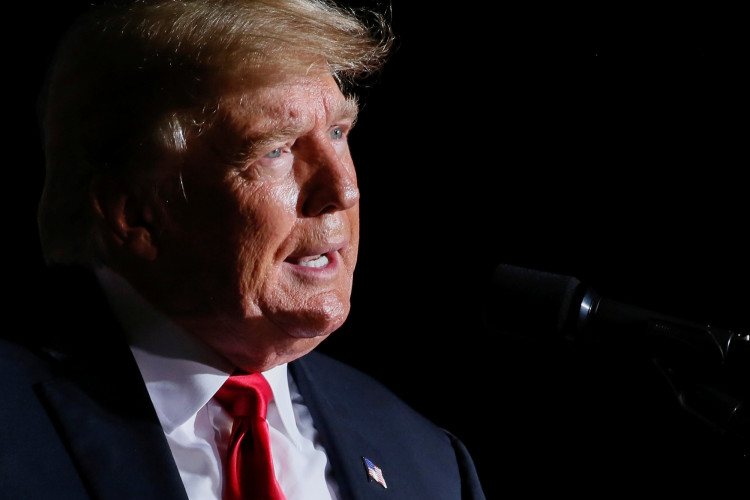In a courtroom in New York, the civil fraud trial against former President Donald Trump, his eldest sons, their companies, and Trump Organization executives has commenced. This trial, which has garnered significant media attention, centers around allegations of inflated assets in fraudulent financial statements.
The trial's initiation follows a recent ruling by Judge Arthur Engoron, which found Trump and his co-defendants liable for "persistent and repeated" fraud. This ruling marked a significant victory for New York Attorney General Letitia James, who filed the $250 million lawsuit last September. The lawsuit alleges that Trump and his co-defendants repeatedly inflated assets on financial statements to secure better terms on commercial real estate loans and insurance policies.
According to the attorney general's office, Trump inflated his net worth by as much as $3.6 billion across three separate years between 2011 and 2021. Trump's attorneys have countered these claims, arguing that asset valuations are highly subjective. They are currently assessing the implications of the ruling for the company's future.
The trial's outcome could have significant financial repercussions for Trump and his businesses. They could be mandated to pay substantial sums for the profits they allegedly accrued through fraudulent business practices. Judge Engoron will determine the exact amount the Trumps and their businesses will owe.
The lawsuit also proposes that the court consider prohibiting the Trumps from serving as officers of a business in New York and halting the company from conducting business transactions for a five-year duration.
The trial's proceedings have also raised questions about the future of Trump's business empire. The judge has annulled the business certifications of the Trump entities named as defendants in the case, including the Trump Organization. A receiver will now oversee the "dissolution" of these corporate entities. It remains uncertain how the receiver will dissolve the properties, whether the ruling will affect properties outside of New York state, such as Mar-a-Lago, and if the Trumps could transfer the New York-based assets to a new out-of-state company.
The trial has a list of potential witnesses that includes the former president, his adult children, and his closest business advisers. While being listed does not guarantee they will be called to testify, Trump's attorneys have indicated his eagerness to testify in court. Trump has previously stated that the Trump Organization's former chief financial officer, Allen Weisselberg, and his team "primarily" prepared the financial statements. He claimed to have had minimal involvement in preparing the financial statements post-2015, coinciding with his presidential campaign.
The trial is expected to last for three months, although the duration might be shorter given Engoron's recent ruling on fraud liability. The proceedings will take place from 10 a.m. to 4:30 p.m. daily, except on Fridays when the trial will adjourn at 1 p.m.
As the 2024 election approaches, Trump, who is actively campaigning for a second term, is juggling a packed calendar of criminal and civil litigation. The New York attorney general has argued that even a minor delay in this trial would disrupt the trial schedule, potentially causing conflicts with Trump's upcoming cases in other courts.






